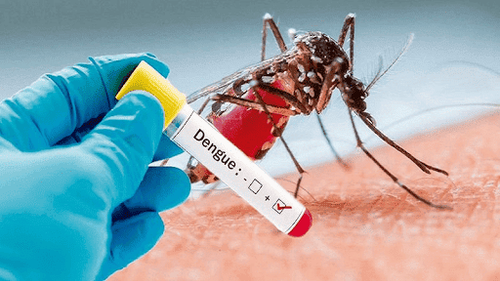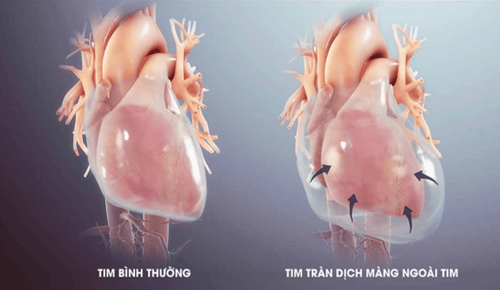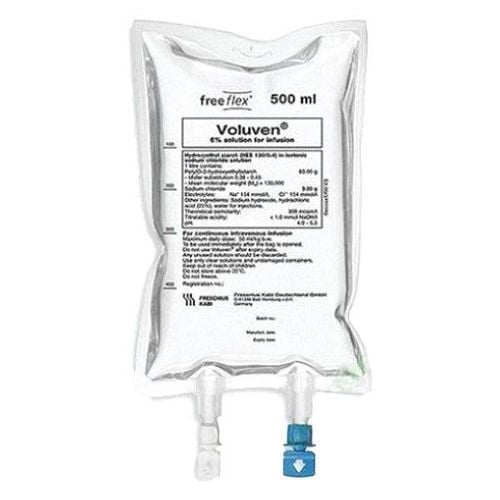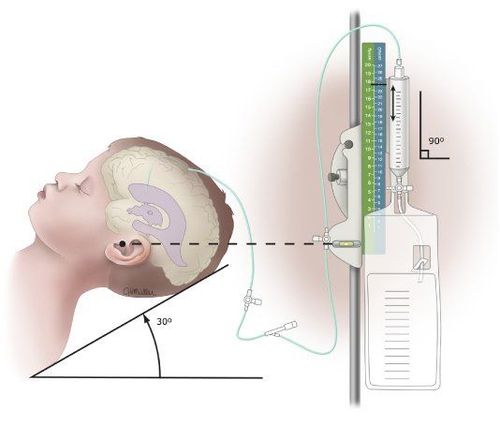This is an automatically translated article.
The article was written by Doctor Tran Thi Phuong Thuy - Hepatobiliary specialist, Vinmec Times City International General Hospital.Dengue fever has a sudden onset and progresses through three stages: the febrile phase, the critical phase, and the recovery phase. In particular, the febrile stage corresponds to the normal form of Dengue hemorrhagic fever, the transition to the dangerous stage means that it has changed to the level of Dengue with warning signs and severe Dengue hemorrhagic fever.
1. What is dengue hemorrhagic fever?
Dengue hemorrhagic fever is an infectious disease caused by the dengue virus. Dengue virus has 4 serotypes: DEN-1, DEN-2, DEN-3 and DEN-4. The virus is transmitted from an infected person to a healthy person by mosquito bites.The Aedes aegypti mosquito is the main vector of the disease. People who live in areas where this mosquito species is susceptible to dengue hemorrhagic fever. Vietnam is a country located in a region with a high rate of dengue fever.
The disease occurs all year round, often increasing in the rainy season. The disease occurs in both children and adults. Dengue hemorrhagic fever is characterized by fever, hemorrhage and plasma leakage, which can lead to hypovolemic shock, coagulation disorders, organ failure, if not diagnosed early and treated promptly, it can easily lead to dead.
2. Transmission routes of dengue fever
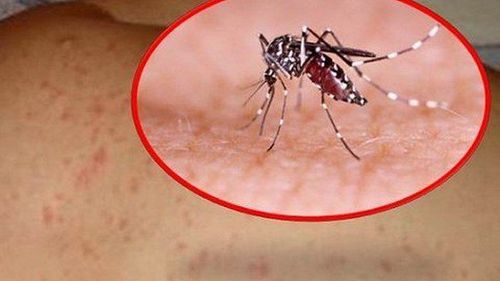
Female mosquitoes are usually only active and bite people during the day, most strongly in the early morning and in the evening. They often reside in dark corners of the house, on clothes and household items. Mosquitoes breed and lay eggs in areas with standing water such as ponds, lakes, in water containers... Mosquitoes thrive in the rainy season, when the monthly average temperature is above 20 0 C. The higher the altitude, the higher the mosquito's reproductive capacity.
The development of the virus in the body of the mosquito: the female mosquito sucks the blood of a person infected with dengue virus, the virus will incubate in the mosquito's body for about 8 to 11 days. The virus then takes up residence in the mosquito's salivary glands. They can now cause dengue fever for the rest of their lives, so just one carrier can infect many people.
2.1 Uncommon routes of transmission Hospital transmission : Virus can be transmitted through blood products, exposure to needlestick lesions, mucosal lesions. Asymptomatic blood donors can also carry dengue virus in their blood. Vertical transmission: In some cases, a mother carrying the dengue virus in her blood (who became ill within 10 days of birth) can pass the virus on to her baby at birth. The disease can manifest in infants when the child is 4-11 days old.
3. How long is the incubation period for dengue fever?
The incubation period is the time from the moment you are bitten by an infected mosquito until the first symptoms appear. This phase is usually about 4 to 7 days, can last up to 14 days. During this period, the patient is still healthy and does not show any symptoms, but about 12-18 hours before having symptoms of fever, the sick person can be a source of infection.4. How does dengue fever manifest?
Symptoms of dengue hemorrhagic fever can be mild or severe, depending on the patient, and can be:Fever Headache Pain in the eye sockets Muscle and joint pain Severe fatigue Rash Nausea, vomiting, diarrhea Cough, sore throat Purpura under the skin Red eyes Swollen lymph nodes Some patients may have severe symptoms: abdominal pain, abdominal distension, vomiting blood, nosebleeds, black stools, convulsions, early menses, abundant or prolonged.
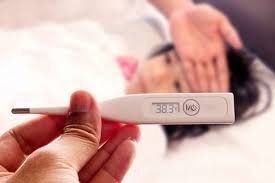
5. What is the most dangerous day of dengue fever?
Dengue fever usually lasts 5-7 days, divided into 3 stages:Febrile phase Severe stage Recovery phase The severe phase begins around the time the fever is gone, usually on the 3rd to 7th day. This phase lasts about 24-48 hours. Patients may still have fever or have reduced fever and may have the following manifestations:
Expression of plasma leakage due to increased vascular permeability, causing pleural, interstitial, peritoneal effusion, eyelid swelling, hepatomegaly , can hurt. If there is a lot of plasma leakage, it will lead to shock with signs of palpitations, restlessness or lethargy, cold extremities, cold and moist skin, small rapid pulse, stuck blood pressure (the difference between maximum and minimum blood pressure ≤ 20 mmHg. ), low blood pressure or unmeasured blood pressure, little urine. Hemorrhage: Subcutaneous haemorrhage: Scattered or punctate petechiae usually on the front of the legs and on the insides of the arms, abdomen, thighs, ribs, or bruises. Hemorrhage in the mucosa: Bleeding from the nose, gums, blood in the urine. Menstruation lasts or occurs earlier than the period. Visceral bleeding such as gastrointestinal, lung, brain is a severe manifestation. Some severe cases may present with organ failure such as severe hepatitis, encephalitis, myocarditis. These severe manifestations may occur in some patients with no obvious signs of plasma leakage or without shock.
6. Dengue fever: have you had it and get it again?
Dengue hemorrhagic fever is an infectious disease caused by the dengue virus. Dengue virus has 4 serotypes namely DEN-1, DEN-2, DEN-3 and DEN-4. Infection with one of these four viruses confers lasting immunity to the virus itself, but little immunity to other viruses. Therefore, the patient can still be infected again. People who have had dengue hemorrhagic fever, if they get it again, are at increased risk for more severe symptoms.7. Do I need to see a doctor?
Have. Since you live in a dengue-endemic area, it is important to see your doctor if you have any symptoms of dengue fever.8. What can I do to get better if I have dengue hemorrhagic fever?

Absolutely do not use Aspirin and NSAID pain relievers such as Ibuprofen (trade names: Gofen, Hagifen ...) because these drugs increase the risk of bleeding.
Vinmec International General Hospital is one of the hospitals that not only ensures professional quality with a team of leading medical doctors, modern equipment and technology, but also stands out for its examination and consultation services. comprehensive and professional medical consultation and treatment; civilized, polite, safe and sterile medical examination and treatment space.
Please dial HOTLINE for more information or register for an appointment HERE. Download MyVinmec app to make appointments faster and to manage your bookings easily.







